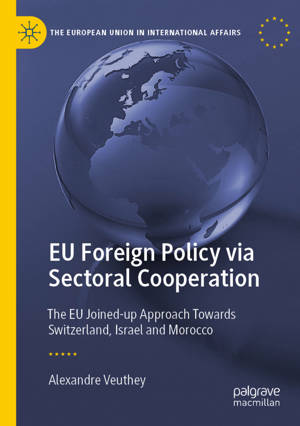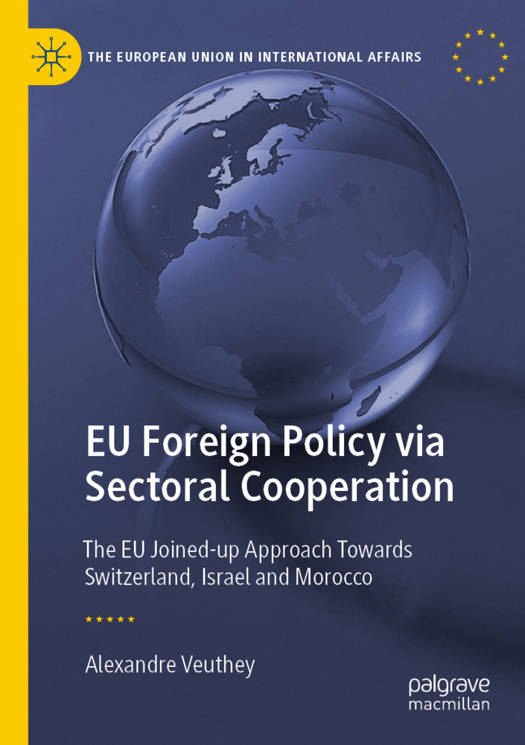
- Afhalen na 1 uur in een winkel met voorraad
- Gratis thuislevering in België vanaf € 30
- Ruim aanbod met 7 miljoen producten
- Afhalen na 1 uur in een winkel met voorraad
- Gratis thuislevering in België vanaf € 30
- Ruim aanbod met 7 miljoen producten
Zoeken
EU Foreign Policy via Sectoral Cooperation
The EU Joined-up Approach Towards Switzerland, Israel and Morocco
Alexandre Veuthey
€ 192,45
+ 384 punten
Uitvoering
Omschrijving
This book conceptualizes the EU's ambition at exercising a "joined up approach" (i.e. the mobilization of EU sectoral policies to realize EU foreign policy goals towards a third country). The framework is applied to three case studies: Switzerland and the Institutional Framework Agreement, Morocco and the Western Sahara issue, and Israel and the Israeli-Palestinian conflict. With the help of these, the author argues that the EU is more likely to follow foreign policy objectives by leveraging on sectoral cooperation ties when the foreign policy objective concerns the conditions of participation in the single market (Switzerland). He also shows that a lack of member states' coherence concerning the compatibility of the foreign policy objective with overarching economic (Israel) or regional/geopolitical (Israel and Morocco) interests counteracts the exercise of a joined-up approach.
Specificaties
Betrokkenen
- Auteur(s):
- Uitgeverij:
Inhoud
- Aantal bladzijden:
- 296
- Taal:
- Engels
- Reeks:
Eigenschappen
- Productcode (EAN):
- 9783031490002
- Verschijningsdatum:
- 8/01/2025
- Uitvoering:
- Paperback
- Afmetingen:
- 148 mm x 17 mm
- Gewicht:
- 406 g

Alleen bij Standaard Boekhandel
+ 384 punten op je klantenkaart van Standaard Boekhandel
Beoordelingen
We publiceren alleen reviews die voldoen aan de voorwaarden voor reviews. Bekijk onze voorwaarden voor reviews.







